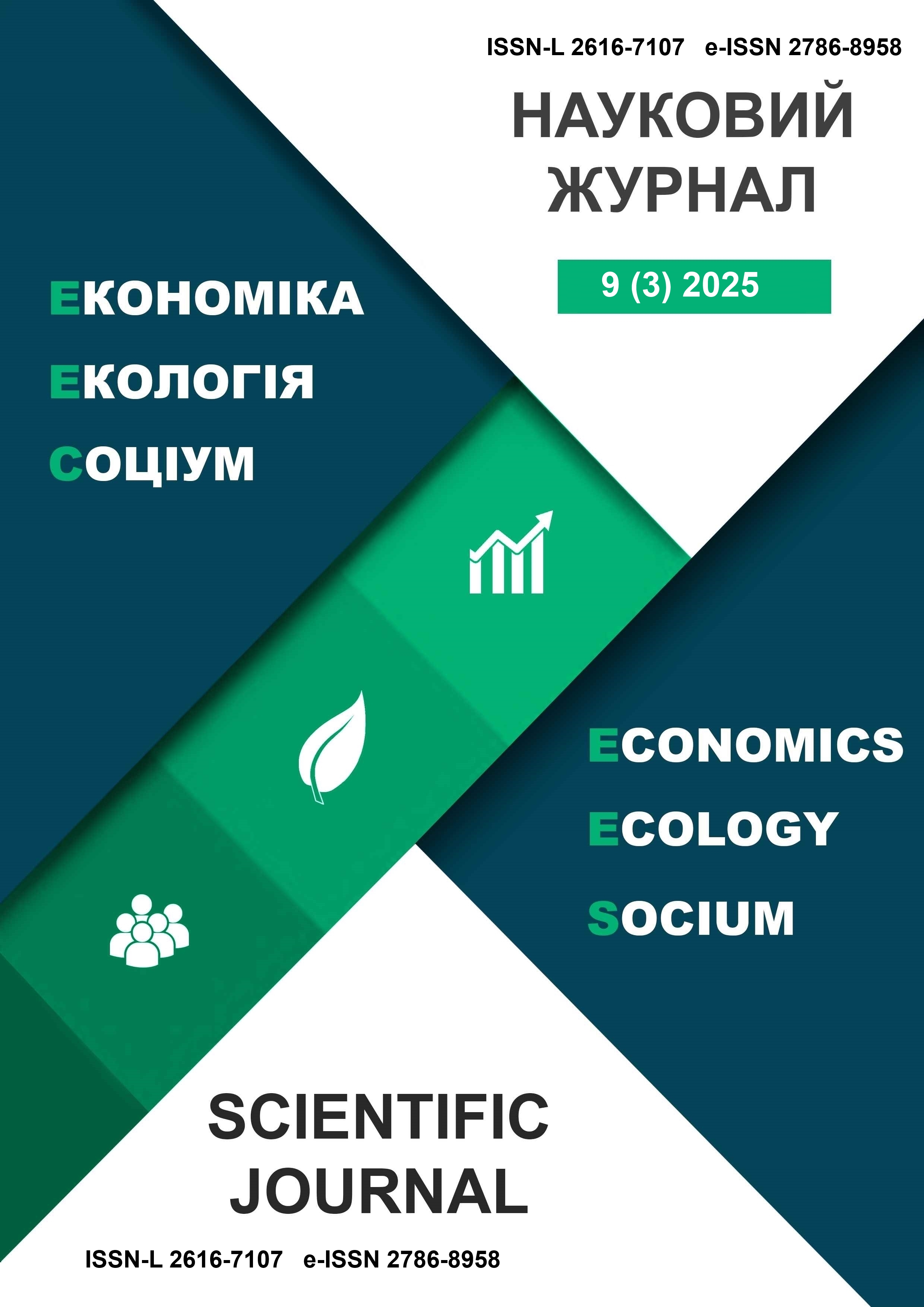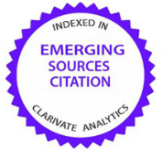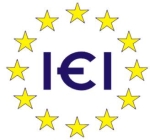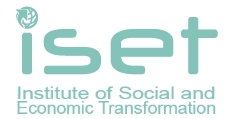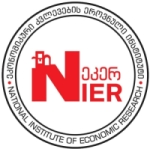Assessment of Factors Influencing Market Leadership and Innovation of FinTech Companies in the Digital economy
Abstract
Introduction. The fintech industry has focused on its potential, as it has rethought the possibilities and put the provision of financial services in a digitally developed world on a completely different level. The digital transformation of financial services, made possible by the rapid development of new technologies that ensure reliable transactions, has boosted the growth of FinTech companies.
Aim and tasks. The study aims to comprehensively assess the determinants of the ability of FinTech companies to achieve market leadership, sustain innovation activity, and ensure regulatory compliance in the context of the financial sector’s digital transformation.
Results. The expert survey developed a standardised codebook to evaluate 15 FinTech companies grouped into three clusters, resulting in a composite index and validating hypotheses about the factors determining growth. The regulatory environment (RE, 0.148), trust and security (TS, 0.139), and access to finance (AF, 0.117) form the core determinants, followed by technological infrastructure (TI, 0.111) and team quality (TQ, 0.108), and the remaining factors have lower relative weights (<0.09). The inter-firm differences are mainly explained by the performance on the regulatory-trust and financial-technology determinants, and the sensitivity analysis shows that a 1-point (0–5) increase in RE/TS/AF increases the index by approximately +0.030/+0.028/+0.023, which quantitatively confirms their leading roles. A comparative analysis of the cohorts showed that the leaders (C1–C7) demonstrated high results (≥4 points on 9–10 factors out of 10) and significant superiority in technology infrastructure (TI) and team quality (TQ). At the same time, the remaining groups of companies had more fragmented profiles with pronounced weaknesses.
Conclusions. FinTech growth relies on a core of regulatory stability (RE), trust and security (TS), and access to finance (AF), complemented by technological infrastructure (TI) and team quality (TQ). Predictable regulation, access to capital, high-security standards, and targeted partnerships maximise the chance of “gazelle” or “unicorn” growth. A predictable regulatory environment and access to investment capital play a key role in accelerating the growth of the FinTech ecosystem. FinTech management should prioritise investments in technology infrastructure, developing highly skilled teams, creating targeted partnerships and ecosystems (PEs), and developing scalability and international expansion (SIEs) to transform high-growth companies into leaders.
Keywords:
Digitalisation, Innovation Management FinTech, Regulation, Technological Infrastructure.References
Ahmad, M., Pata, U. K., Ahmed, Z., & Zhao, R. (2024). Fintech, natural resources management, green energy transition, and ecological footprint: Empirical insights from EU countries. Resources Policy, 92, 104972. https://doi.org/10.1016/j.resourpol.2024.104972
Al-Khazaleh, S., Badwan, N., Saleh, Q., Almashaqbeh, M., & Qubbaj, I. (2025). Corporate financial trends, dynamics of FinTech impact and financial regulation: Joint evidence from Jordan and Palestine. Digital Policy, Regulation and Governance, 27(5), 553–570. https://doi.org/10.1108/DPRG-09-2024-0226
Barbosa, K., Rocha, B. de P., Pereira, L. M., & Passos, L. F. (2024). Payment card interchange fee regulation and financial institutions: The effects on traditional and fintech financial conglomerates. Finance Research Letters, 64, 105491. https://doi.org/10.1016/j.frl.2024.105491
Carè, R., Boitan, I. A., & Fatima, R. (2023). How do FinTech companies contribute to the achievement of SDGs? Insights from case studies. Research in International Business and Finance, 66, 102072. https://doi.org/10.1016/j.ribaf.2023.102072
Chaklader, B., Gupta, B. B., & Panigrahi, P. K. (2023). Analyzing the progress of FINTECH-companies and their integration with new technologies for innovation and entrepreneurship. Journal of Business Research, 161, 113847. https://doi.org/10.1016/j.jbusres.2023.113847
Chambefort, C. (2025). Alliance with fintech: Are banks opening the Pandor box? In N. Apergis (Ed.), Encyclopedia of Monetary Policy, Financial Markets and Banking (1st ed., pp. 427–430). Academic Press. https://doi.org/10.1016/B978-0-44-313776-1.00117-3
Ferrari, M. V. (2022). The platformisation of digital payments: The fabrication of consumer interest in the EU FinTech agenda. Computer Law and Security Report, 45, 105687. https://doi.org/10.1016/j.clsr.2022.105687
Giakoumelou, A., Salvi, A., Bekiros, S., & Onorato, G. (2024). ESG and FinTech funding in the EU. Research in International Business and Finance, 69, 102233. https://doi.org/10.1016/j.ribaf.2024.102233
Hmoud, A., Magableh, F., Badwan, N., & Almashaqbeh, M. (2025). Impact of FinTech on capital allocation: Empirical evidence from Jordan and Palestine. Borsa Istanbul Review, 25(5), 1068–1084. https://doi.org/10.1016/j.bir.2025.06.004
Kaniadakis, A., & Foster, P. (2024). The role of fintech startups and big banks in shaping trust expectations from blockchain use in mainstream financial markets. Technological Forecasting and Social Change, 203, 123376. https://doi.org/10.1016/j.techfore.2024.123376
Karim, S., & Lucey, B. M. (2024). BigTech, FinTech, and banks: A tangle or unity? Finance Research Letters, 64, 105490. https://doi.org/10.1016/j.frl.2024.105490
Kou, M., Yang, Y., & Chen, K. (2024). Financial technology research: Past and future trajectories. International Review of Economics & Finance, 93(A), 162–181. https://doi.org/10.1016/j.iref.2024.03.032
Kowalewski, O., & Pisany, P. (2023). The rise of fintech: A cross-country perspective. Technovation, 122, 102642. https://doi.org/10.1016/j.technovation.2022.102642
Liu, S., Wang, B., & Zhang, Q. (2024). Fintech regulation and bank liquidity creation: Evidence from China. Pacific-Basin Finance Journal, 84, 102276. https://doi.org/10.1016/j.pacfin.2024.102276
Ma, C. Q., Xiong, Y. K., & Chen, X. Q. (2025). Fintech innovation regulation in China: An index-based comprehensive evaluation. Finance Research Letters, 85(D), 108209. https://doi.org/10.1016/j.frl.2025.108209
Merello, P., Barbera, A., & De la Poza, E. (2022). Is the sustainability profile of FinTech companies a key driver of their value? Technological Forecasting and Social Change, 174, 121290. https://doi.org/10.1016/j.techfore.2021.121290
Merello, P., Barbera, A., & De la Poza, E. (2023). Analysing the determinant factors of the sustainability profile of Fintech and Insurtech companies. Journal of Cleaner Production, 421, 138437. https://doi.org/10.1016/j.jclepro.2023.138437
Nenavath, S. (2025). Exploring the dynamics of fintech impact, financial regulation, and corporate financial trends: An analysis of India. Asia Pacific Management Review, 30(1), 100336. https://doi.org/10.1016/j.apmrv.2024.11.006
Ni, Q., Zhang, L., & Wu, C. (2023). Fintech and commercial bank risks–The moderating effect of financial regulation. Finance Research Letters, 58(C), 104536. https://doi.org/10.1016/j.frl.2023.104536
Pizzi, S., Corbo, L., & Caputo, A. (2021). Fintech and SMEs sustainable business models: Reflections and considerations for a circular economy. Journal of Cleaner Production, 281, 125217. https://doi.org/10.1016/j.jclepro.2020.125217
Pu, Y., & Cai, Y. (2025). FinTech and corporate digital technology innovation. Finance Research Letters, 85(B), 108007. https://doi.org/10.1016/j.frl.2025.108007
Tan, W., Tang, Q., Sun, W., & Du, X. (2025). Unintended consequences: Examining the effects of government digital regulation on corporate fintech innovation in China. Emerging Markets Review, 64, 101221. https://doi.org/10.1016/j.ememar.2024.101221
Wang, Q., & Hu, C. (2023). Fintech, financial regulation and corporate financialization: Evidence from China. Finance Research Letters, 58(B), 104378. https://doi.org/10.1016/j.frl.2023.104378
Wang, Y., Drabek, Z., & Wang, Z. (2022). The role of social and psychological related soft information in credit analysis: Evidence from a Fintech Company. Journal of Behavioral and Experimental Economics, 96, 101806. https://doi.org/10.1016/j.socec.2021.101806
Xiao, A., Xu, Z., Skare, M., Xiao, J. L., & Qin, Y. (2024). Unlocking the potential of FinTech: A pathway to sustainable resource management in the EU. Resources Policy, 98, 105358. https://doi.org/10.1016/j.resourpol.2024.105358
Xu, Y., & Bao, H. (2023). FinTech regulation: Evolutionary game model, numerical simulation, and recommendations. Expert Systems with Applications, 211, 118327. https://doi.org/10.1016/j.eswa.2022.118327
Zhao, Y., & Ma, F. (2025). Will fintech enhance financial regulation? Research in International Business and Finance, 78, 103005. https://doi.org/10.1016/j.ribaf.2025.103005
If the article is accepted for publication in the journal «Economics. Ecology. Socium» the author must sign an agreementon transfer of copyright. The agreement is sent to the postal (original) or e-mail address (scanned copy) of the journal editions.
